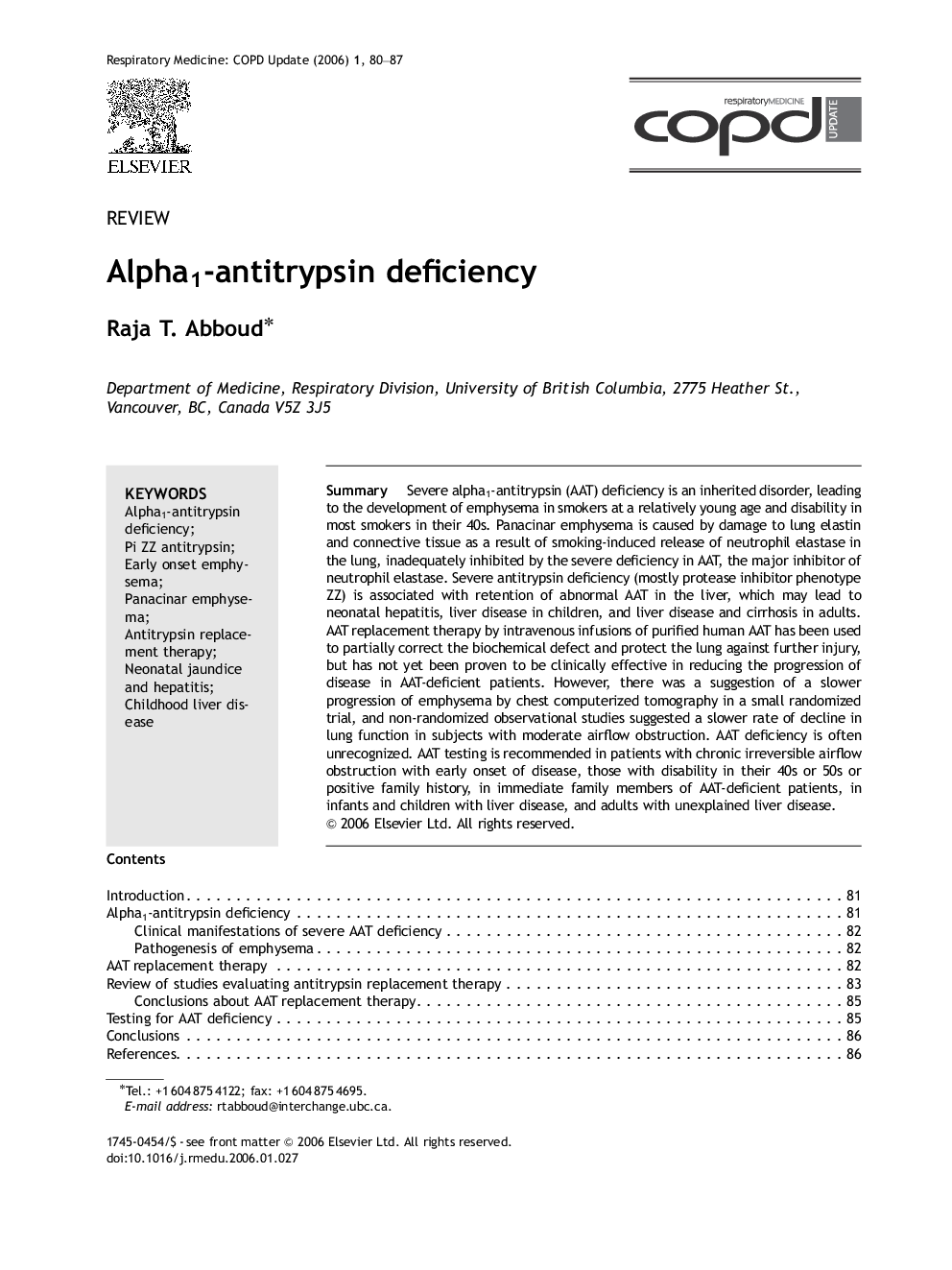| Article ID | Journal | Published Year | Pages | File Type |
|---|---|---|---|---|
| 4213625 | Respiratory Medicine: COPD Update | 2006 | 8 Pages |
SummarySevere alpha1-antitrypsin (AAT) deficiency is an inherited disorder, leading to the development of emphysema in smokers at a relatively young age and disability in most smokers in their 40s. Panacinar emphysema is caused by damage to lung elastin and connective tissue as a result of smoking-induced release of neutrophil elastase in the lung, inadequately inhibited by the severe deficiency in AAT, the major inhibitor of neutrophil elastase. Severe antitrypsin deficiency (mostly protease inhibitor phenotype ZZ) is associated with retention of abnormal AAT in the liver, which may lead to neonatal hepatitis, liver disease in children, and liver disease and cirrhosis in adults. AAT replacement therapy by intravenous infusions of purified human AAT has been used to partially correct the biochemical defect and protect the lung against further injury, but has not yet been proven to be clinically effective in reducing the progression of disease in AAT-deficient patients. However, there was a suggestion of a slower progression of emphysema by chest computerized tomography in a small randomized trial, and non-randomized observational studies suggested a slower rate of decline in lung function in subjects with moderate airflow obstruction. AAT deficiency is often unrecognized. AAT testing is recommended in patients with chronic irreversible airflow obstruction with early onset of disease, those with disability in their 40s or 50s or positive family history, in immediate family members of AAT-deficient patients, in infants and children with liver disease, and adults with unexplained liver disease.
